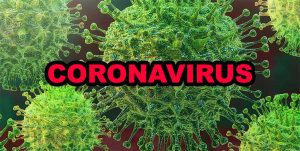Jamaica And The Coronavirus 2019 (COVID19) Pandemic; Minimising The Negative Impact Is Possible
The SARS-CoV2 (coronavirus 2019) which causes COVID-2019 is considered more contagious than the influenza virus despite being much larger.
Influenza has a shorter (IP) incubation period (time from exposure to developing symptoms of infection) than the IP of 2-14 days for COVID-2019, and spreads more quickly.
Influenza transmission usually occurs 3-5 days after developing symptoms (transmission may however occur before symptoms develop), whereas for COVID-2019 transmission can occur from 24-48 hours prior to an exposed person developing symptoms.
Someone with COVID-2019 is likely to infect 2-2.5 persons, which is higher than a similar number of patients exposed to a patient with influenza. Influenza predominantly infects children, pregnant women and the elderly, as well as those with immunocompromising disorders.
The epidemiology of COVID-2019 is still unfolding but preliminary data support a higher infectivity and mortality among the elderly, patients with heart disease, lung disease, diabetes mellitus, and smokers (even younger people who smoke). Available data indicate a mortality rate of 3-4% for COVID-2019 and 0.1% for influenza.
Whereas COVID-2019 is a relatively new disease with epidemiology still not yet clearly defined, influenza can be treated with available medications, and vaccines are available to help with prevention of infection. There are not yet available based on standardised methods, any available vaccines or reliable treatments for COVID-2019.
 Health authorities in Jamaica as of March 22, 2019 confirmed 19 cases of COVID-2019, but since this concern for infected healthcare workers has not materialised, the numbers are still in flux.
Health authorities in Jamaica as of March 22, 2019 confirmed 19 cases of COVID-2019, but since this concern for infected healthcare workers has not materialised, the numbers are still in flux.
Infection of healthcare providers including doctors, nurses and epidemiology staff who tract infected patients is concerning since there is reported inadequate availability of personal protective equipment (PPE) to satisfy current demands.
Healthcare workers may therefore be inclined to retreat from the front line in the management of this concerning and rapidly expanding infection. Recommended current practices among healthcare professionals include:
1. Aggressive hand hygiene in addition to avoidance of facial touching.
2. Proper use of PPE, including and N95 mask, surgical mask, face shields, and gowns and gloves when appropriate.
3. Isolation of infected patients and co-horting of infected patients with dedicated staff thus allowing optimal use of available resources.
4. Rapid identification of source patients with appropriate quarantine, and efficient contact tracing with isolation or quarantine as appropriate to decrease community spread.
5. Expertise appropriate for the situation should guide decision making; ombudsman, politicians, religious leaders and other non-experts should be guided by the expertise of the infection control and medical professionals.
The trajectory of infections in Jamaica is expected to rise especially if the population is not cooperative and continue to view instituted quarantine or isolation measures as optional. Regarding the currently diagnosed cases totalling 19 patients it would be reasonable to assume that Jamaica probably now has at least 4-80 times this number of truly infected patients.
The experience from China, Italy, Spain, France, Iran, Germany, and the United States is highly supportive of this projection.
Prime Minister Andrew Holness, and Minister of Health and Wellness Dr. Christopher Tufton must continue to update the public, providing appropriate transparent and accurate information to maintain the trust and engage the cooperation of the Jamaican community.
The population should be encouraged to:
1. Engage in physical distancing, while maintaining social engagement, through phone calls, the internet, text messages, Facebook, and Twitter. This should help to decrease a likely rise in infections. Additional benefits may include decrease in child abuse, spousal abuse, increase in divorce rates, depression, increased stress on single parents, fear level among those at risk, and exponential rise in pregnancies in the next 9-12 months.
2. All Jamaicans should be immediately encouraged to plant cash crops. Included among the crops to be considered are peas, beans, pumpkins, watermelons, peppers, tomatoes, cabbage, and callaloo. Jamaicans should also be encouraged to raise chickens (for eggs and meat), goats, and other rapidly multiplying animals.
By engaging in these activities Jamaicans may become less dependent for vital nutrition on imported food. They may also gain income from selling excess of these produce. The impact of these interventions on the national economy could be significant while allowing people to feel a greater sense of responsibility, and engagement as the country fights this concerning pandemic.
Since COVID-2019 is believed to have originated in China and related to exposure to either bats or pangolins the only way to decrease the disease’s impact in Jamaica is for every Jamaican to consider himself/herself infected, practice proper hygiene and physical distancing, and fully cooperate with health leaders and government directives.
By doing this disease curve of spread can be flattened thus maximally and significantly reducing the spread of this infection.
Guest author: Leon Wright
Download The Jamaican Blogs™ App for your Android device: HERE
Remember to share this article on Facebook and other Social Media Platforms. To submit your own articles or to advertise with us please send us an EMAIL at: [email protected]

